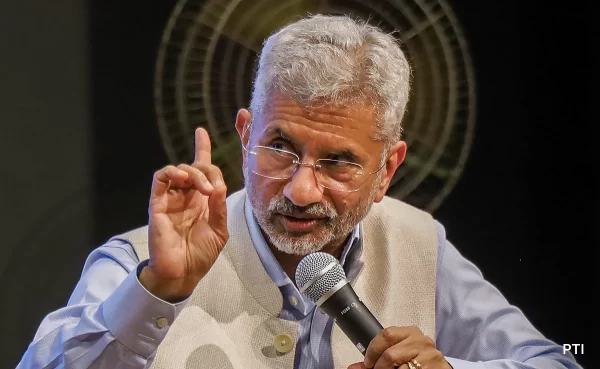Every Central Committee, whose class is approved by the CCP’s National Congress at the time of its five-monthly election, holds seven plenums in its five- time cycle.
The Chinese Communist Party is in the midst of a four- day plenum, from November 8 to 11. The plenum is the most important event in China’s political timetable, a meeting of all members of the Central Committee of the party. As general clerk of the party, President Xi Jinping is leading the plenum, attended by all 370 members of the central commission.
Every Central Committee, whose class is approved by the CCP’s National Congress at the time of its five-monthly election, holds seven plenums in its five- time cycle. Each plenum has a theme — the first two are generally about the party organisation, the third and fourth deal with governance, the fifth is about the coming five- time plan, the sixth revolves around ideological issues and sets the stage for a leadership change, and the seventh is about the coming National Congress.
The present Central Committee is the CCP’s 19th and this is its sixth plenum.
It was at the sixth plenum of the 18th commission in 2016 that Xi was declared a “ core” leader of the CCP, a term that has been used only for three other Chinese leaders Mao Zedong, Deng Xiaoping and Jiang Zemin. The ensuing time, Xi wasre-elected for a alternate term.
The plenum is a unrestricted- door event. A statement is issued at the end of every plenum furnishing information about the conversations and the judgments.
What should one anticipate from this plenum?
Xi is anticipated to unveil a “ literal resolution” named‘Resolution of the CCP Central Committee on the Major Achievements and Literal Experience of the Party’s Century of Struggle’. The significance of this resolution is that there have only been two other literal judgments, one by Mao Zedong in 1945 ( Resolution of Certain Questions in the History of our Party), and the alternate by Deng Xiaoping in 1981 ( Resolution of Certain Questions in the History of our Party Since the Founding of the People’s Republic of China). Xi’s comes in the centenary time of the Chinese Communist Party.
Mao’s resolution debunked rivals within the CCP and cemented his position as the supreme leader of the party. Deng’s was an acknowledgement of Mao’s failures, including the “ Cultural Revolution” and “ Great Leap Forward”. It set the stage for the profitable reforms, or “ Opening Up” of the frugality to Chinese- style capitalism.
Xi’s commentary on the 100- time history of the CCP is anticipated to be less critical of the party’s miscalculations, or individualities in it, as he has faced no serious pitfalls to his leadership. Nor is it anticipated to dwell on controversial events similar as the 1989 Tiananmen Square youth demurrers. It’s anticipated to draw a line of durability from Mao to Xi and his drive down from Western- style capitalism in favour of “ common substance” towards erecting China as a “ ultramodern Socialist power”.
Why is the plenum significant for Xi?
By pitching himself in the same league as Mao and Deng with a “ literal resolution”, Xi is also anticipated to cement his shot for a third term coming time.
Publicizing the sixth plenum in August this time, the CCP Politburo said a “ literal resolution” was needed for erecting “ a ultramodern socialist country and promoting illiberalism with Chinese characteristics”. And, “ for upholding General Secretary Xi Jinping’s core position at the CPC Central Committee and in the whole party, as well as the authority of the CPC Central Committee and its centralised, unified leadership”.
The stage for Xi’s continuance was formerly set in 2018, when the National Congress suggested to amend the Chinese Constitution to remove the two- term limit for the administration.
The 2018 Congress also wrote into the Constitution “ Xi Jinping Allowed on Illiberalism with Chinese Characteristics for a New Period”, a set of programs deduced from Xi’s speeches.
It’s now elevated in the Constitution alongside Marxism-Leninism, Mao Zedong Thought, Deng Xiaoping Theory, and the Proposition of Three Represents, as the guiding principles of China. Xi Jinping Thought is studied at seminaries and universities.




